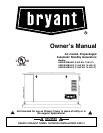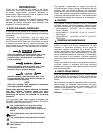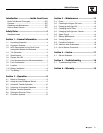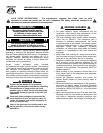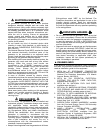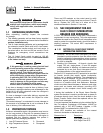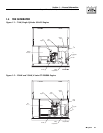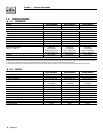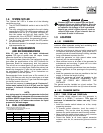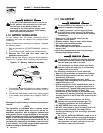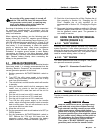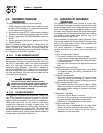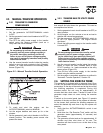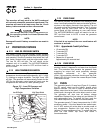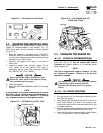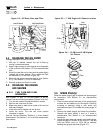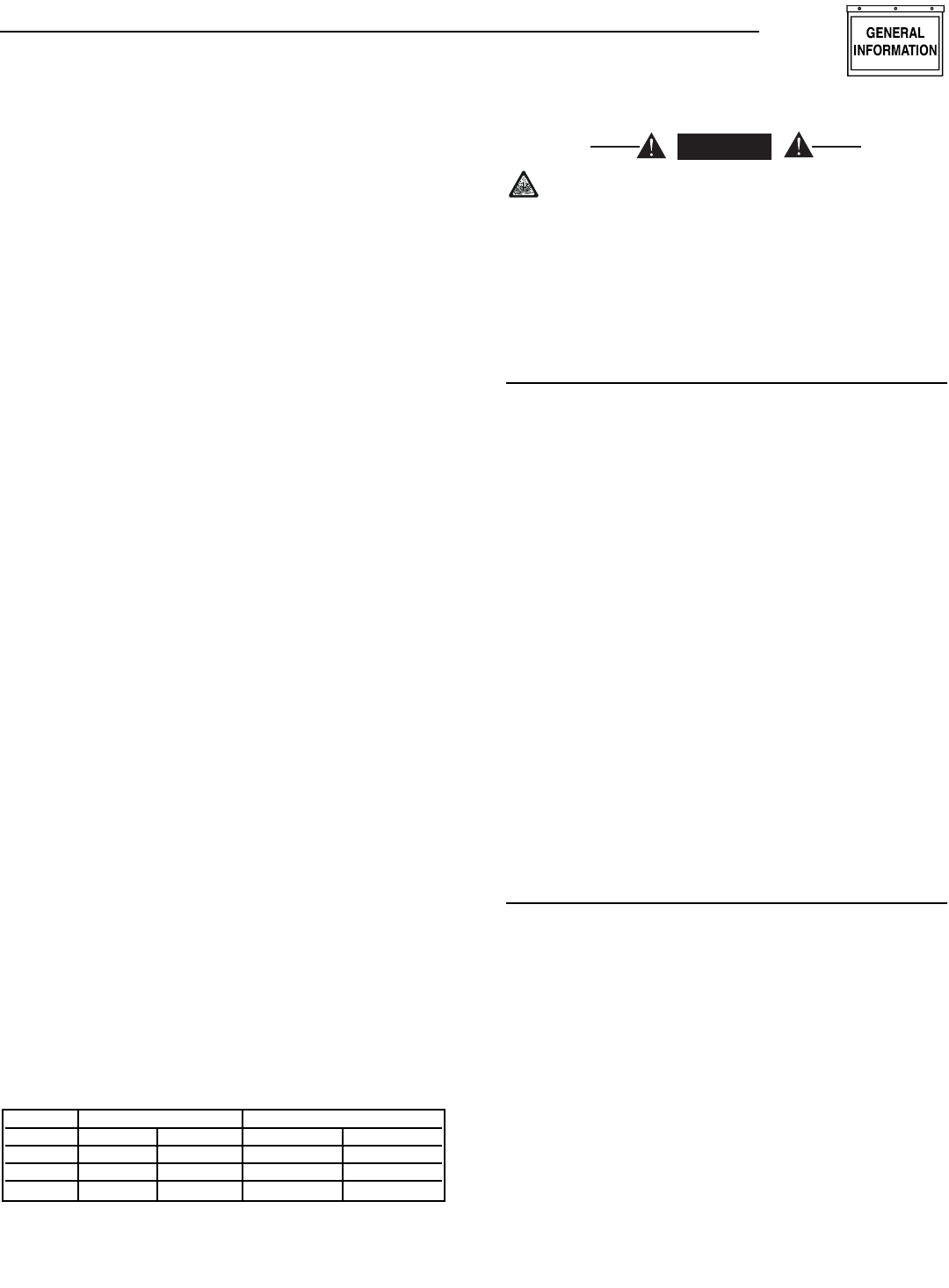
Bryant 7
1.6 SYSTEM SET LED
The “System Set” LED is lit when all of the following
conditions are true:
1. The AUTO/OFF/MANUAL switch is set to the AUTO
position.
2. The utility voltage being supplied to the unit is being
sensed by the PCB. If the utility sense voltage is not
connected to the unit or if it is below 168 volts AC,
then the system set light will flash rapidly. This
indicates that if the AUTO/OFF/ MANUAL switch is
placed in the Auto position, the generator will start.
3. The “Not In Auto” dip switch is set to the OFF position
on the control board.
4. No alarms are present, for example, low oil pressure,
high temperature, etc.
1.7 FUEL REQUIREMENTS
AND RECOMMENDATIONS
With LP gas, use only the vapor withdrawal
system. This type of system uses the vapors formed
above the liquid fuel in the storage tank.
The engine has been fitted with a fuel carburetion system
that meets the specifications of the 1997 California Air
Resources Board for tamper-proof dual fuel systems.
The unit will run on natural gas or LP gas, but it has been
factory set to run on natural gas. Should the primary fuel
need to be changed to LP gas, the fuel system needs to
be reconfigured. See Section 1.9 for instructions on
reconfiguration of the fuel system.
Recommended fuels should have a Btu content of at
least 1,000 Btus per cubic foot for natural gas; or at least
2,520 Btus per cubic foot for LP gas. Ask the fuel supplier
for the Btu content of the fuel.
Required fuel pressure for natural gas is 5 inches to 7
inches water colum (0.18 to 0.25 psi); and for liquid
propane, 11 inches to 14 inches of water column (0.4
to 0.5 psi).
NOTE:
Any piping used to connect the generator to the fuel
supply should be of adequate size to ensure the fuel
pressure NEVER drops below 4 inches water colum
for natural gas or 10 inches water column for liquid
propane for all load ranges.
1.8 FUEL CONSUMPTION
*Natural gas is in cubic feet per hour.
**LP is in gallons per hour/cubic feet per hour.
*** Values given are approximate.
Gaseous fuels such as natural gas and liquid
propane (LP) gas are highly explosive. Even the
slightest spark can ignite such fuels and cause
an explosion. No leakage of fuel is permitted.
Natural gas, which is lighter than air, tends to
collect in high areas. LP gas is heavier than air
and tends to settle in low areas.
1.9 LOCATION
1.9.1 GENERATOR
Install the generator set, in its protective enclosure,
outdoors, where adequate cooling and ventilating air is
always available. Consider these factors:
• Install the unit where air inlet and outlet openings will
not become obstructed by leaves, grass, snow, etc. If
prevailing winds will cause blowing or drifting, consider
using a windbreak to protect the unit.
• Install the generator on high ground where water
levels will not rise and endanger it.
• Allow sufficient room on all sides of the generator for
maintenance and servicing. A good rule is to allow
three feet of space on all sides.
• Where strong prevailing winds blow from one direction,
face the generator air inlet openings to the prevailing
winds.
• Install the generator as close as possible to the fuel
supply, to reduce the length of piping.
• Install the generator as close as possible to the
transfer switch. HOWEVER, REMEMBER THAT
LAWS OR CODES MAY REGULATE THE
DISTANCE.
The genset must be installed on a level surface. The
base frame must be level within two (2) inches all around.
1.9.2 TRANSFER SWITCH
1.9.2.1 7 kW, 12 kW and 15 kW Units
The transfer switch shipped with this generator is
enclosed in a NEMA 1 enclosure. This type of
enclosure is intended for indoor use only. Follow
these rules:
• Install the transfer switch indoors on a firm, sturdy
supporting structure.
• To prevent switch distortion, level the switch if
necessary. This can be done by placing washers
between the switch enclosure and mounting surface.
• Never install the switch where water or any corrosive
substance might drip onto the enclosure.
• Protect the switch at all times against excessive
moisture, dust, dirt, lint, construction grit and corrosive
vapors.
◆
◆
DANGER
Section 1 — General Information
Bryant Air-cooled 7 kW, 12 kW and 15 kW Generators
Model # Nat. Gas (*) LP Vapor (**)
1/2 Load Full Load 1/2 Load Full Load
6/7 kW 66 119 0.82/30 1.47/54
12 kW 152 215 1.53/56 2.08/76
13/15 kW 156 220 1.58/58 2.40/88



